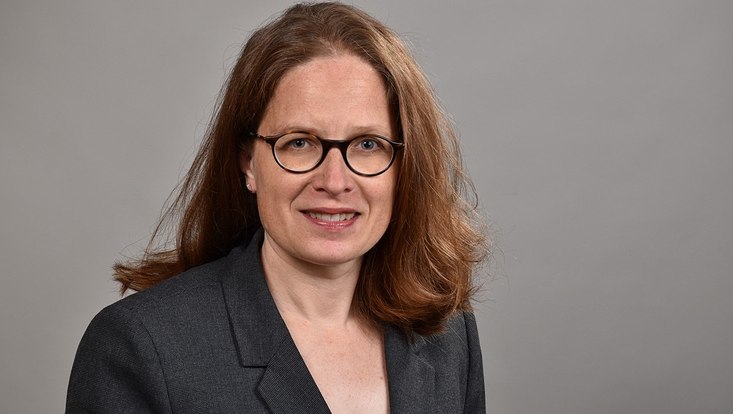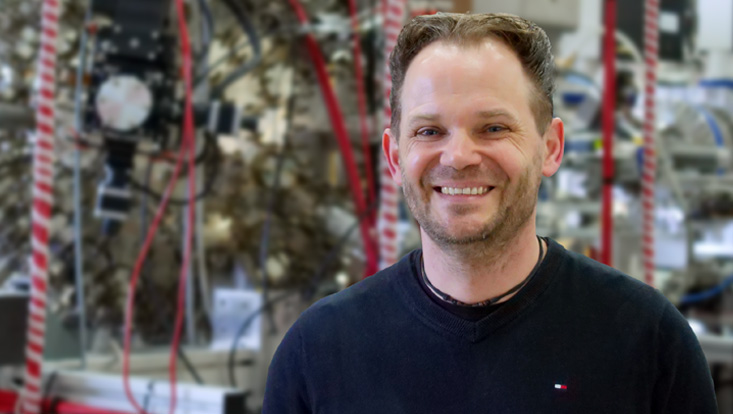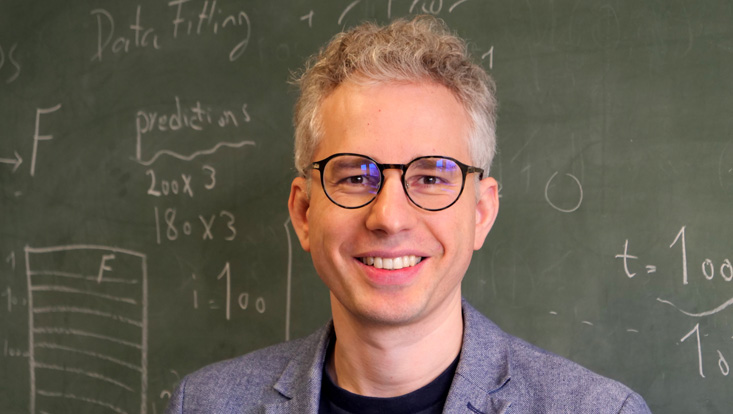Welcome aboard!Educational Barriers, (In)justice, and ParticipationProf. Dr. Tanja Sturm strengthens education.
3 April 2024, by Bente Gießelmann

Photo: foto-anhalt
Every year, Universität Hamburg welcomes numerous new researchers. This series introduces them and their areas of research. This time: education researcher Prof. Dr. Tanja Sturm.
Prof. Dr. Tanja Sturm joined Universität Hamburg from the Martin-Luther-Universität Halle-Wittenberg. She took up her professorship for education with a focus on early childhood and primary education and diversity in pre- and primary school-aged children in the Faculty of Education.
Your path as a researcher in 5 sentences:
My path as a researcher began in Sedanstraße, where I was an undergraduate research assistant under, among others, Prof. Dr. Karl Dieter Schuck in special needs education. After that, I did my doctorate in the education research research training group and completed my teaching practice period in Hamburg. Now my research career has brought me to Hamburg again, via Klagenfurt, Basel, Münster, and Halle.
The focus of my research career is characterized by work on diversity issues, inclusion, and justice in the context of school and the classroom in different school systems. My academic work is based primarily on generating perspectives to surmount existing injustices.
My research area in brief:
I am currently involved in 2 projects. In one of them, we are comparing how pupils in Germany and Canada experienced the pandemic. In Germany, schools were closed for a long time and often without sufficiently accessible digital equipment while schools in Canada were closed for a comparatively short time and, in international comparisons, are digitally very well-equipped. We are looking at which experiences of (impeded) social and academic participation pupils in the fourth grade at the outset of the pandemic had.
Initial findings show that the experiences of children from non-privileged backgrounds in Germany differ from those of their Canadian peers and German pupils from privileged backgrounds: their social and academic participation was significantly impaired.
In a second project, my colleagues and I are looking at how barriers to participation among elementary school students in peripheral social spaces in Saxony-Anhalt can be dismantled. We are taking a comparative approach for urban and rural areas. Research in rural areas has been a desideratum in German-speaking educational science thus far.
This is how I explain my research to my family:
Many people know that in Germany, educational success depends more than in other countries on the families and generally the life situations of pupils. In my research, I look at how these injustices are created in the classroom. I do not assume that this happens solely because of the teachers. Rather, I see their practices in relation to the formal school context, meaning the norms and expectations pupils face.
International comparative research fosters a more nuanced view of policy, that is, the formally codified framework and the practices, above all, classroom instruction. Another research interest is the perspectives of the pupils themselves, e.g., how they experienced school during the corona pandemic.
My research is important to society because:
Education and just and equal participation in it are central aspects of a democratic and sustainable society. That all children and adolescents have these experiences at school and in the classroom is what I wish to contribute with research. Concretely, this means using research methods to recognize and describe those barriers that currently stand in the way of the societal goals that, among other things, have been formulated in the UN’s Sustainable Development Goals. This way, they can be dismantled in the future.
This is why students should attend my courses:
In my courses, I like to work with data from current research projects that can be compared with theoretical findings and normative societal premises. Questions about justice, diversity, and inclusion at school and in the classroom are very important to me, just as comparisons of different school contexts are. In one of my seminars in the summer semester, I collaborate with colleagues and their students from Japan and Norway.
Reaching out to the world: I work with the following international and federal institutions and universities:
Right now I am working intensively with colleagues in Canada, Norway, and Japan. One of the goals of my teaching is to further include researchers from the Global South in our joint courses. Together with my colleagues in the United States, I am currently writing an article in which we compare school inclusion in Germany, Zimbabwe, and the United States—they are working at Universität Hamburg’s partner university in Greensboro in North Carolina, USA.
These are my plans at Universität Hamburg:
I would really like to build upon my current cooperation with schools in Canada—for exchange with students, teachers, and educators. Diversity in schools and classrooms is also a vital aspect in Canadian schools.
Another one of my concerns is critical reflection upon questions of poverty, especially child poverty and its significance for school and classroom teaching and learning. A not insignificant portion of children and adolescents are growing up in wealthy Hamburg in these conditions. I would like to sensitize future teachers and educators to their situations. I also like to present my findings to policymakers in education and schooling and discuss them with representatives.
In Hamburg, the city and the University, I am looking forward to:
In Hamburg, I am really looking forward to collaborating in the faculty and at the University and beyond, e.g, with schools and social-work institutions in the city’s districts. I am looking forward to spring on the Elbe and the Alster and to the cultural diversity of the city and University.


